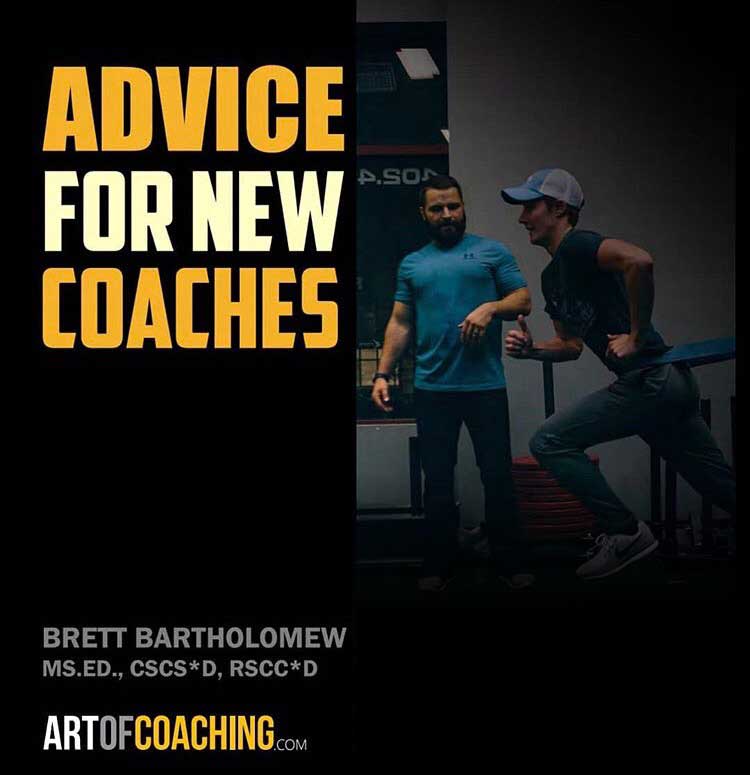It’s not sexy to ask for help.
Often times, to the untrained eye, asking for help conveys weakness, a lack of fortitude, a lack of intelligence, a lack of organization or perhaps even all of the above. But none of us get through life without it in some way, shape or form so why do we hold it in such contempt?
We are often worried about what others think. As human beings, we crave validation and status, and being able to claim that we are a “self-made man/woman” is the purest form of ego candy that allows us to satisfy our self-indulgent sweet tooth for the sense of security or control over our own lives that we tend to spend our entire existence chasing.
It’s time to get past this. As the African Proverb states, “smooth seas don’t make for skillful sailors.” With that same axiom in mind, it can be pretty tough to successfully navigate a ship through a storm all alone.
That is why I decided to give myself a unique and somewhat uncomfortable gift this Christmas. The gift of an Executive Assistant. No, I’m not talking about a virtual assistant or some chatbot. I mean an actual assistant that was referred to me from a close friend, and required me to “pony up” a fairly significant amount for their services. It is, and was terrifying, but so far- it has also been worth it.
Before I list some of the reasons why I did this and how it has helped specifically let me say this, in my primary line of work (strength and conditioning), I would be laughed out of the building if I told more than 10 people about this. Why? Because strength coaches COACH! What do they need an assistant for? Having an assistant isn’t new to those of you who are are solely entrepreneurs or work in the corporate realm, but you’d be hard-pressed to find many in human performance who have one. That’s in part because many of those who work in the team setting have interns, Graduate Assistants, assistant coaches or others that they can lean on. So they do in fact have “assistants” they just call them by a different name.
I used to live in that world, but now, since the release of my book, the international speaking that I do, and the fact that I coach within the private sector which lends itself to far more volatile and unpredictable schedule demands, the rapidity of responsibilities and requests that came from what seemed like a million different directions quickly made it evident that if I didn’t ask for help that I was going to drown, and possibly take my marriage down with me.
Allow me to provide a bit more context for the large majority of you who are likely unfamiliar with me, or my work due to this being my first true foray into the world of blogging. Previously I had worked as a strength coach at two separate Universities, as well as other institutions and by and large, my only duties while at these jobs was to coach.
That all changed the moment I decided to go the independent route just a few years ago. My wife and I felt stuck in our careers, a career (coaching) that to me, ranks amongst the best job anyone could have, but is often accompanied by both a volatility issue (it is a running joke that strength coaches are often the the “last hired and first fired” whenever something goes wrong with an athlete or a sports team), as well as a financial ceiling that can make it hard to provide for a family over the long-term. Bottom line, you don’t tend to see many strength coaches who can actually retire as coaches while also keeping both their marriage and their own physical health in tact. I wanted to make sure that my wife and I didn’t join the ranks of those who were both broke and broken down, so I researched ways where we could both continue to serve others as well as create some flexibility and option value for ourselves.
So, I did what any crazy person would do, I wrote a book and started my own performance coaching and consulting business. And while it was a rocky start from a logistics standpoint at first, after a couple of weeks it was clear that we had made the right choice. But as the amount of emails that came pouring in from sport coaching organizations, members of the US Military who held PRODEV (Professional Development) seminars, fellow coaches who owned their own facilities and run clinics, athletes interested in training, and even corporations began to pile up, so did my anxiety.
I quickly became overwhelmed as I scrambled to answer every tweet, every direct message, every email, every text and the like. After awhile, I was barely getting any of my actual work done. Sound familiar? I am sure many of you have dealt with this same issue to some degree. At this point, any notion of hiring an assistant was one I still personally scoffed at. Besides, where was I going to get the money? I had just started my own business and essentially taken out a loan so that I could independently publish my book Conscious Coaching, (a decision I’m very happy that I made to this day). I felt as if I was the last person on Earth who could afford an assistant, and I also had no idea where to find anyone reputable that I could actually trust or wouldn’t have to hold their hand every step of the way.
This cycle of push-through, wake up even earlier, and work even harder to try and knock out every request continued for nearly 18 months far longer than my sanity lasted. I experimented with different organization systems and apps, some of which worked for awhile until eventually they too became overwhelmed with new issues and the diverse nature of the amount of things I was dealing with, and I also read and researched tirelessly to figure out what else I needed to be doing.
It wasn’t until I finally gave in, that things started to look-up.
I don’t care what any billionaire or productivity based life-hacking guru tells you, sometimes systems simply aren’t enough. Ask the airports how their highly organized and integrated systems work for them once chaos hits, or one unexpected snag in the chain occurs. Better yet, ask the woman with five screaming kids down at gate B18 who hasn’t slept and has been speed-eating complimentary bags of airline peanuts due to a flight delay that caused her and her family to spend the night.
I felt like that woman.
Now, I’d love to tell you that I am now some assistant optimizing dynamo whose life problems have been solved, but I’m not. My assistant and I just started working together a short while ago which is exactly why I believe this to be the perfect time to write this article that hopefully provides you with realistic advice instead of saccharin soundbytes. Once you have found someone trustworthy (oh, and please don’t be naive, be sure to have an assistant of any kind to always sign a fair but firm confidentiality agreement), it’s time to figure out exactly what the heck you are going to have them do.
For me, this thought process breaks down as follows:
Values First
You cannot and should not outsource your relationships. What I mean by this is that everything you do still requires your own personal touch. That is, if you care about doing it well. So although my assistant has access to my inbox and will respond first-hand to some messages, it is ultimately me who follows up with serious inquiries or those needing more personal advice. She simply acts as a buffer and orchestrator since both my coaching and travel schedule don’t allow me to be by my computer or phone at all times. I respect those who take the time to reach out enough that I want them to get a response within a reasonable amount of time and my assistant helps me do that.
Figure it Out First-Hand
When partnering with an assistant it can be tempting to read a bunch of articles and see what other people do to best seamlessly integrate with their own assistants. That is fine, but keep in mind that only YOU know what will work best for you. Learning how to work well with others is a like a dance lesson, the steps do not become intuitive until you’ve had a couple of awkward encounters and perhaps stepped on some toes. The most important thing is that you dive in with a general plan and then get feedback from both your assistant and those that he/she interacts with. Communication is an ever-evolving process.
Chronicle the Journey
Eventually the time may come where you and your current assistant may have to part ways for any number of reasons. This is why you should ask them to create a separate document of the processes that you both come up with and a general “best-practices” guidebook. That way, should you ever have to hire a replacement, you do not need to start the process anew every-time.
Keep the End Goal in Mind & Embrace the Inevitable Discomfort
Perhaps this one applies to some of you more than others, but for me it is still very uncomfortable using an assistant or having them occasionally reach out or respond to others on my behalf. I’m simply not used to it yet, and few of my colleagues in the strength and conditioning space utilize this resource aside from the aforementioned interns or virtual assistants. But I also have to remind myself that my role is different now. I am no longer just a coach. I am now a coach, speaker, author, adjunct professor, consultant, husband and business owner. Even mentioning those things is still a bit weird for me since it all seemed to happen so fast. Regardless, although I may still primarily identify with being a coach, I had to accept the fact that if I didn’t ask for help, I would have a much more limited bandwidth to help others at the scale in which I would like to. Which brings me to my next, and final point…
In Order to be Selfless, You Must Occasionally Be Selfish
Did I lose you there? Cull the bleeding heart for a moment and hear me out. None of us can help others to the best of our abilities if we do not first take great care of ourselves. This is the essence behind Maslow’s hierarchy of needs. I know it is en vogue to act as if everything we do is purely about others, and hopefully for the majority of the time that is true. But it is far more realistic to admit that we still have to pay the bills, parent our children, work on making sure we are a great partner to our significant other, and also perhaps enjoy life a bit along the way.
An assistant can help you do all that and more. That is, if you are willing to let them.
*Enjoy this article and want to read more? Check out this link. I’ve also created a free downloadable Field Guide for enhancing your communication strategies when leading, coaching or otherwise working with others.
As always, thanks so much for stopping by, and if this article provided any sort of enjoyment or insight, please share with 10 people you know. I appreciate it and hope to see you at artofcoaching.com in the near future.



